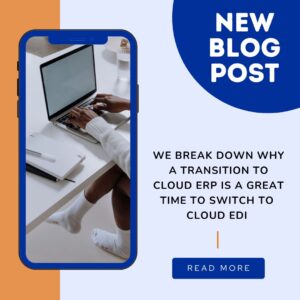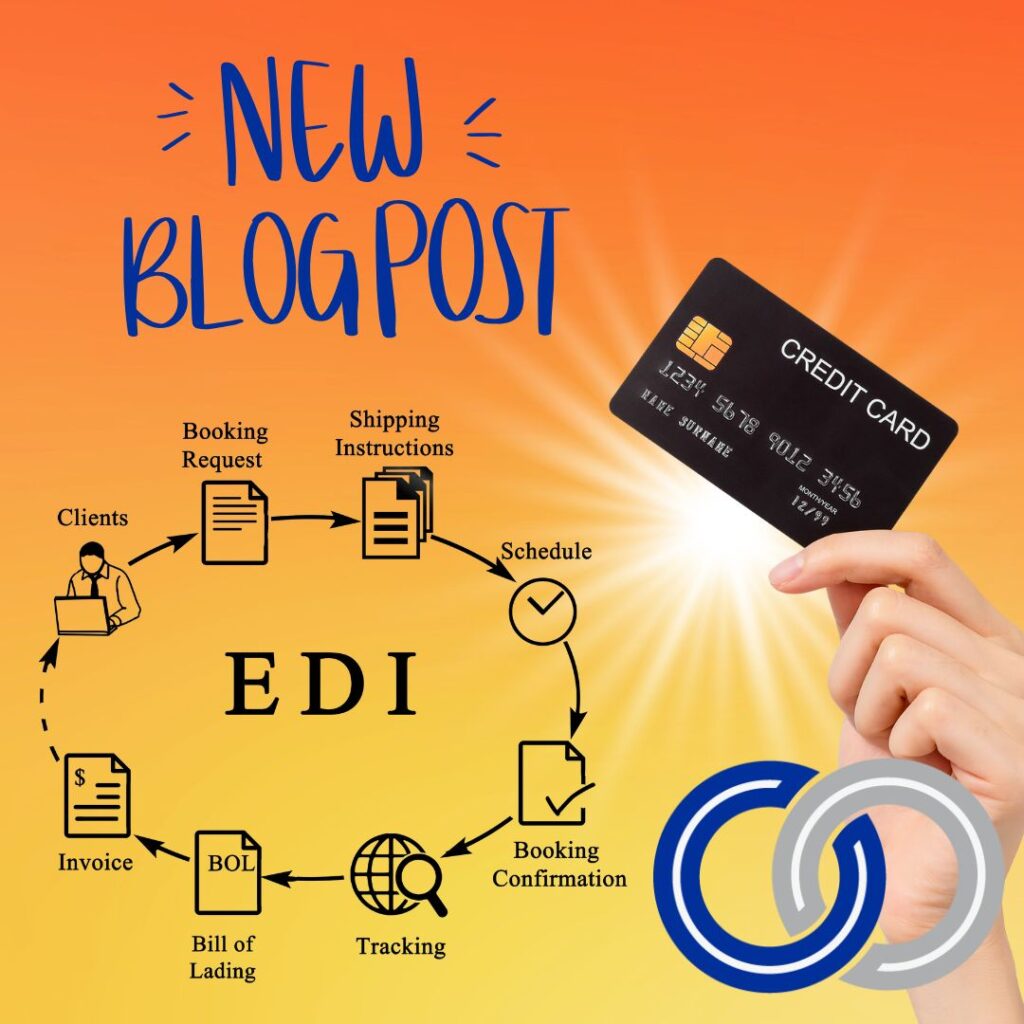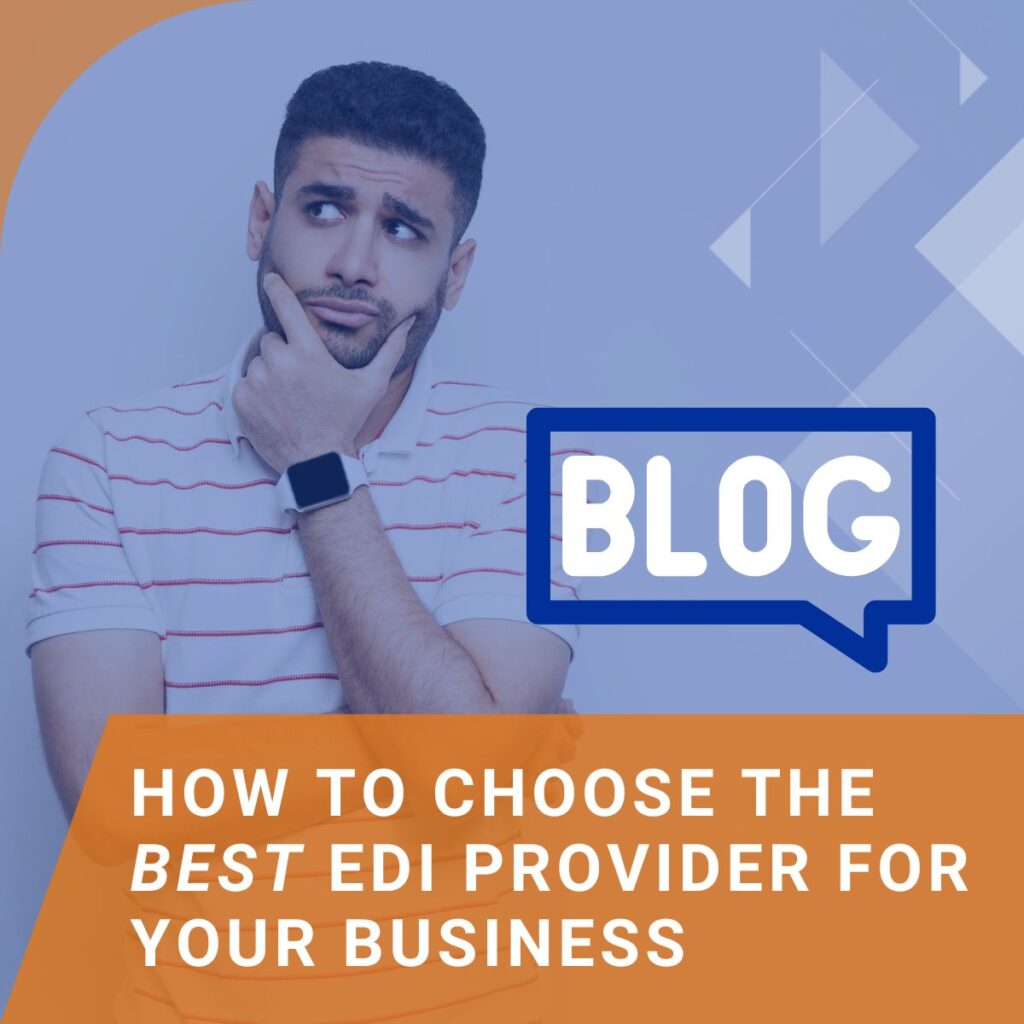
Migrating to a new Enterprise Resource Planning (ERP) system like D365 can be a transformative step for any business. However, one critical component often overlooked during this transition is the integration of Electronic Data Interchange (EDI) systems. Too often, EDI becomes an afterthought in all the pomp and circumstance of upgrading to a shiny new ERP when EDI should be top of mind! Choosing the right D365 EDI partner can significantly affect the efficiency, accuracy, and overall success of your migration. This blog will guide you through the essential factors to consider when selecting an EDI provider for your D365 ERP migration.
Understanding EDI for D365 and Its Importance
Electronic Data Interchange (EDI) is the electronic transfer of business documents in a standardized format between organizations. For businesses that rely on timely and accurate data exchange—like retailers, manufacturers, and distributors—an efficient EDI system is crucial. It facilitates communication with trading partners, reduces errors, and streamlines operations. When planning your D365 ERP migration, your EDI system should seamlessly integrate with the new platform to ensure business continuity.
Assess Your Business Needs
Before diving into the selection process, it’s essential to have a clear understanding of your specific business needs. Consider the following:
Volume of Transactions
How many transactions do you process monthly? Higher volumes may require more robust solutions. GraceBlood’s VelociLink™ can handle volumes as low as 150 documents per month and as high as hundreds of thousands of documents per month (VelociLink™ Enterprise).
Types of Documents
Identify which documents you exchange (e.g., purchase orders, invoices, shipping notices) to ensure the EDI provider can handle them.
Trading Partner Requirements
What are the EDI requirements your trading partners are asking for? Ensure the provider can meet these requirements. And that the provider will maintain the ongoing care and feeding of that relationship. You don’t want to have remind your provider that your trading partner migrated to v5010 6 months ago.
Integration Capabilities
The primary reason for migrating to D365 is often to leverage its extensive capabilities. Your chosen EDI solution must integrate seamlessly with D365. Here are some points to consider:
ERP Foot-Print
The best EDI solution is one that leverages the built-in ERP endpoints to accomplish integration and have a very minimal foot-print inside the ERP, thus not impacting future ERP upgrades.
Customization Options
If your business has unique requirements, ensure the provider allows for customization of the integration to meet your specific needs. Item number discrepancies should be no match for an experienced EDI provider.
Real-time Data Transfer
The ability to transfer data in real-time (i.e. APIs) can significantly enhance your operational efficiency, so consider providers that are experienced in such technologies.
Scalability & Flexibility
Your business is likely to grow and change over time, and your EDI for D365 solution should be able to adapt accordingly. Consider the following:
Scalability
Choose a D365 EDI partner that can accommodate increasing transaction volumes without sacrificing performance. Does the provider offer a single-tenant solution if necessary?
Support for Multiple Formats
As your business evolves, you may need to exchange different types of documents or data formats. Ensure the provider can handle various EDI standards and protocols.
Security and Compliance
With the rise of data breaches, security should be a top priority when selecting an EDI provider. Key considerations include:
Data Encryption
Ensure that the provider offers encryption for data in transit and at rest to protect sensitive business information.
Compliance Standards
Confirm that the EDI provider complies with industry regulations (e.g., HIPAA, GDPR, SOC) relevant to your business.
Support and Service Levels
Having a reliable support system in place is critical, especially during and after the migration process. Assess the following:
Technical Support
Does the provider offer robust customer support? Quick access to assistance can minimize downtime and disruptions.
Self-Service
Does the provider offer a dashboard to view and monitor your EDI activity? Being able to easily identify when an ASN was sent without relying on support can be a game changer.
Service Level Agreements (SLAs)
Review the SLAs to understand the provider’s commitments regarding uptime, support response times, and issue resolution.
Pricing Structure
Cost is always a significant factor when choosing EDI for D365. Look for transparency in pricing and evaluate the following:
Initial Costs vs. Long-term Value
Consider both setup fees and ongoing costs. A provider with a lower upfront cost may have higher long-term fees and vice versa, so weigh the total cost of ownership, including cost of full-time employees to manage EDI for on-premise solutions, as well as hardware and software maintenance. Comparing apples to apples is important when considering cloud-based EDI versus on-premise EDI.
Flexibility in Plans
Some providers offer tiered pricing based on transaction volume or features, which can be beneficial as your business grows. GraceBlood offers VelociLink™ Essentials for the most basic integration or VelociLink™ Enterprise for high volume or highly complex integration projects.
Reputation and Experience
Research the reputation and experience of potential EDI providers. Be sure to look beyond the big names and glossy presentations. Key aspects to consider include:
Industry Experience
A provider with a strong track record in your industry or who has integrated with many of your existing trading partners may have better insights into your specific needs.
Client Testimonials & Case Studies
Look for references and case studies that highlight successful migrations and integrations with D365. Another good resource is your ERP partner – they have intimate knowledge of how successful, or not successful, an ERP migration went for their other clients.
Don’t Rush Choosing an EDI Provider for your D365 ERP Migration
Selecting the right EDI provider for your D365 ERP migration is a critical decision that can impact your business operations significantly. By assessing your business needs, understanding integration capabilities, prioritizing security, and evaluating support services, you can choose a provider that aligns with your objectives. Remember, a successful EDI implementation can lead to improved operational efficiency, reduced costs, and enhanced relationships with your trading partners.
Take the time to conduct thorough research, ask questions, and evaluate options before making your decision. With the right EDI partner by your side, your ERP migration to D365 can be a smooth and successful journey.
Learn more about VelociLink™ from real client case studies like Green Bay Packaging and Santa Monica Seafood!








